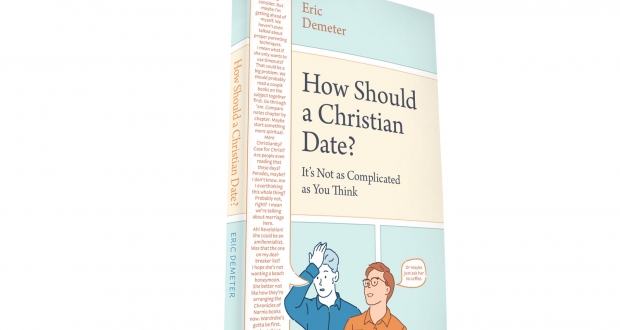There Is No One Right Way to Date, Only Many Wrong Ones
What was I thinking when I lifted weights with a friend who won the Mr. Teen Indiana bodybuilding competition? I was a veritable beanpole as a teenager. One time, after a squat workout, I fell on the floor when I stepped out of bed the next day because my legs were so sore. Squats can certainly be painful, but thankfully there are many different types that will benefit your legs. A bar across your back is only one way-using dumbbells or your body weight also work great. I like using no weight the best, because then I can always walk the next day.
Believe or not, dating is like doing squats. Let me explain. For the most part, I am free—just as you are—to try any type of squat. There is no wrong kind of squat because all of them are beneficial in their own way. True for all squats, however, is that there is a wrong way to perform them. If I lift the weight (or my body) using my lower back muscles instead of my quadriceps, I could easily damage my body.
In this light, dating has the same diversity and the same warning as squats. As Christians, we are free to date in many different ways. Indeed, there is no one right way to get to know someone, only wrong ways. Like squats, if you violate the core principles you can easily damage yourself and the other person.
Many Ways to Date
Before describing the wrong ways to date, let me now show you why dating can be so confusing; namely, why there is no one-size-fits-all formula.
Some people, like high school sweethearts, find that special guy or gal at a young age. They meet in English class, date and create a successful marriage. Their relationship is decided early in life—case closed. My grandparents met in high school and never dated anyone else. This past February they celebrated their seventieth wedding anniversary.
Other people decide to wait for the Right One. Their dating model is basically a passive approach. “Dating around” is not in their vocabulary. Finally, that special person catches their eye and they marry in their twenties, thirties or even later. One guy I know barely dated, waited for years and met his love at thirty-eight years old.
Still, other individuals endure date-after-date with many different people over the years. For better or for worse, they routinely begin relationships with gusto and fizzle out after a few dates. The cycle continues until both parties “click” and head to the altar.
Active daters like this usually reside in two camps. First, some follow the single-file methodology, dating only one person at a time. They consider it an anathema to let Barry escort them to a movie on Friday followed by an exclusive hike with Bobbie on Sunday. The other camp does the opposite. They juggle dating multiple people during the month, week or even day. My friend took this to the extreme and one time had three dates on the same afternoon with three different women. I don’t recommend it. Still, after three years and a hundred first-dates, he found his spouse and has set a wedding date.
Then there’s the speed of dating (not to be confused with speed dating) that must be considered. It’s how fast or slow you get to know someone. I’ve heard that couples should experience a year together before considering engagement. Other mature Christians are adamant that it’s OK to meet and marry your soul-mate within six months. I don’t disagree.
Certainly, the health of a dating relationships lies somewhere between the tortoise and the hare, but the point of this article is not to find the best way to date. Instead, the point is that if you place in a bowl the many types of dating mentioned above, whip them together and add in the varying velocity ingredients, what comes out of the oven is an almost endless variety of dating relationships.
Again, there is no one right way to date, only wrong ones. God gives us principles to follow so we don’t hurt ourselves and others. What follows below is comparable to dating with your back muscles instead of your quadriceps.
Don’t Communicate Intentions
First, you can cause unneeded pain in a dating relationship by not communicating your intentions. It doesn’t matter whether you call it friendship, dating, courting or getting to know each other. What is important, however, is that your time with a person of the opposite sex is clearly defined. You need to communicate what is happening.
For example, are you hanging out with a man or woman only as friends with no chance for marriage? Great! Let them know. Do you have a small interest in someone but need to give it time and see if it grows? Fantastic! Say it. Are you dating multiple people? I love your vigor but don’t hold this information to yourself.
Overall, talk about it. Even if you’re not sure what you want after five-pages of texts or a few afternoon hikes, it’s still beneficial to open up to your dates. Discussing ambivalence is better than not having any dialogue at all about the nascent relationship.
A friend of mine was the king of messaging his female friends, “Want to grab coffee?” The only clue to his intention was, “I want to get to know you better.” Ugh. That was as clear as mud. Many women would ask him, “Why?”, and for good reason. Without clarification, he left a large gap for women to guess his reasoning.
Let me insert a caveat. I’m not saying there is a hard and fast rule to call it a date every time it could be a date. Sometimes it’s implicit. You don’t always have to D.T.R. (Define the Relationship) after going out for lunch with someone.
What I am saying is that when there is doubt as to whether you and the other person are on the same page regarding the date/appointment/get-together, talk about it—clearly. Break the confusion with words. By doing so you will respect and honor both yourself and the other person.
Getting Involved Physically
It’s not rocket science that you’ll probably be at least mildly attracted to the prince or princess you’re on a date with. It’s biological science. Whenever hormones are at play, however, it’s best to give them a time-out until you know which direction the relationship is headed.
To me, the point of dating is to get to know someone’s likes and dislikes, their family and their dreams. It’s a time to enjoy someone’s company and have fun doing shared activities. Premature physical touch, on the other hand, only heightens our sex drive and muddies the dating waters.
Because of this, I believe it’s a good idea to place a moratorium on physical affection until you are confident in the direction of the relationship. It may sound extreme, but enticing gestures like holding hands and kissing become tantamount to emotional Super Glue. And if you’ve ever accidently glued two fingers together, you understand how painful it is when you tear them apart. Not engaged? Then it’s best to keep those hands from interlocking in that popcorn bowl.
Dismiss the Meaning of Key Events
As I stated earlier, we can date wrongly by not stating our intention in the beginning stages. But we don’t stop there. Even couples in steady relationships face challenges of being on the same page with shared life events.
For example, if Betty Sue asks me to have dinner with her parents for the first time, I might believe the relationship is getting serious. From her side, she may consider it just another fun date. Or, if I end a great night out with Sally over a long embrace, she might think it’s time for a ring. From my side, however, I was simply raised in a family like the one in My Big Fat Greek Wedding.
Mixed meanings are normal, whether it’s going on a road trip together or meeting siblings. One woman I dated wanted to wait before we sat together in church. This step was significant for her but wasn’t a big deal for me.
The bottom line is that when you feel there could be a discrepancy in the meaning of an event, it is important to communicate the meaning you place onto it.
Conclusion
As we’ve seen, God gives many right ways to date but wrong ones remain. Overall, communicate your intention as you get to know someone. Combine this with avoiding physical touch and discussing the meaning of events and you will go a long way toward producing a healthy relationship or a healthy breakup.










Leave a Reply